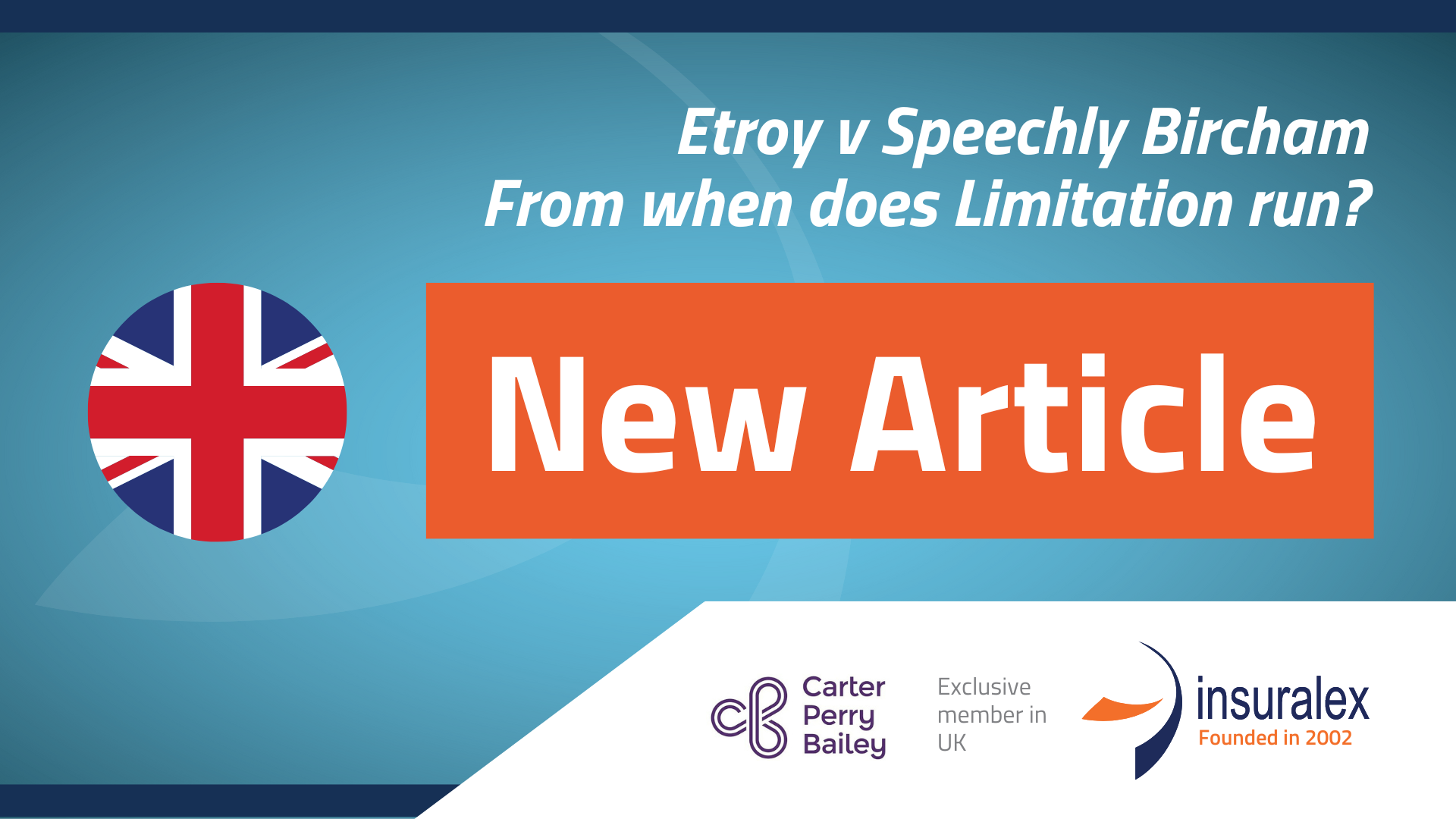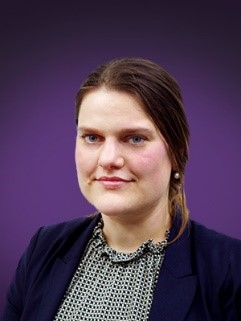
3, 2, 1 go – From when does Limitation run?
The High Court provides guidance of the ‘knowledge’ required under section 14A of the Limitation Act 1980.
Section 14A of the Limitation Act 1980 (“LA”) provides a secondary limitation period for bringing claims where facts relevant to a prospective cause of action are not known at the expiry of the primary limitation period. In such instances, an additional 3-year limitation period runs from the date from which a claimant has (i) knowledge of damage in respect of which damages are claimed, or (ii) knowledge that such damage is attributable to acts or omissions which are alleged to constitute negligence.
This provision is particularly relevant to professional negligence claims, where a claimant may not recognise for a number of years that advice given by professional advisors was erroneous. The issue of ‘knowledge’ was considered by the Court in Etroy and RBC Trust Company (Jersey) Limited v Speechly Bircham LLP [2023] EWHC 386 (Ch), where the claimant alleged he had not appreciated for almost 10 years that tax advice had not been optimum.
Background
The claimant, Mr Etroy, a French national and high worth individual resident in England instructed the Defendant in 2009 to assist in respect of tax planning. At the time, Mr Etroy held an interest in possession in a Jersey based trust (“the 2002 Trust”). In order to mitigate potential IHT charges the Defendant advised him to transfer this to a new discretionary Trust. Accordingly, in 2009, Mr Etroy established a Trust in the Cayman Islands (“the 2009 Trust”) to which, in 2010, he transferred assets previously held by the 2002 Trust.
The Defendant, however, failed to appreciate that the 2002 Trust held UK situs assets, which were subject to an immediate entry tax charge of £1 million upon being transferred to the 2009 Trust. This entry charge could have been avoided by transferring the assets to an overseas company before transferring the shares of that company to the 2009 Trust.
In February 2017, Mr Etroy sought tax advice again, this time from PwC in anticipation of legislative changes concerning non-domiciled residents. PwC was formally engaged in March 2017. Following this, over a period of eighteen months, various correspondence was exchanged between Mr Etroy and PwC, notably:
1. On 2 May 2017, PwC informed Mr Etroy of potential tax charges arising due to the Trust assets having UK situs. PwC indicated that, with the assistance of Mr Etroy’s Trustee, they would need to consider all relevant facts to clarify the position.
2. On 10 September 2018, PwC advised Mr Etroy that the transfer into the 2009 Trust would generate a tax liability in the region of £800,000.
3. That advice was followed by a conference call on 28 September 2018 in which PwC indicated a prospective tax liability of £1m, causing Mr Etroy to query “why nobody had pointed out this potential liability to him” and that he would “be seeking legal advice on this matter so he understands his options” and “he feels it is clear he was badly advised at the time and the result is not his fault”.
Knowledge under section 14A LA
Mr Etroy issued proceedings on 26 May 2021 (more than 4 years after the May 2017 advice was delivered). The Defendant pleaded that the claim was out of time, with the Court ordering that limitation be tried as a preliminary issue. The principal issue to be determined was when Mr Etroy had ‘knowledge’ under Section 14A LA.
The requirement is defined at subsection 14A(6) LA as knowledge of both ‘(a) material facts about the damage; and (b) of the other facts relevant to the current action. Pursuant to sub-section 7, material facts comprise “such facts about the damage as would lead a reasonable person who had suffered such damage to consider it sufficiently serious to justify his instituting proceedings for damages against a defendant who did not dispute liability and was able to satisfy a judgment”.
The Defendant’s case was that Mr Etroy had the requisite knowledge pursuant to section 14A LA by 2 May 2017 at the latest. It submitted that:-
1. Mr Etroy’s Trustee, RBC, was undertaking significant investigations at PwC’s request as to both the 2002 and 2009 Trusts’ tax positions;
2. Mr Etroy was on notice of the material issues which caused the prospective tax liabilities, namely that UK situs assets had been transferred, and that PwC was investigating the same, and
3. Mr Etroy (and/or RBC), being sophisticated in financial matters, would have known that thousands of pounds would require to be spent investigating the issue and submitting a corrective statement to HMRC.
During argument, the Defendant relied on the Court of Appeal’s decision in Gravgaard v Aldridge Brownlee [2004] EWCA Civ 1529, a judgment which concerned constructive knowledge. Lady Justice Arden found that Ms Gravgaard had constructive knowledge for the purposes of a claim under Section 14A LA at the time when she ‘could reasonably have been expected to seek professional advice’. Lady Justice Arden further held that the test for determining whether it was reasonable to expect a person to seek legal advice was objective, but the Court should take into account external surrounding circumstances such as the significance of the case to a reasonable person in a similar position to Ms Gravgaard.
The Court’s decision
The parties agreed that there were two elements to knowledge that the Court would require to determine being knowledge: (a) “of the material facts about the damage in respect of which damages are claimed” (addressed in s14A(6)(a) and (7)); and (b) “that the damage was attributable in whole or in part to the act or omission which is alleged to constitute negligence” (addressed in s14A(8)(a)).
The Court, adopting Lord Nicholls in Haward v Fawcetts [2006] UKHL 9 (who in turn adopted the words of Lord Donaldson of Lymington MR in Halford v Brookes [1991] 1 WLR 428) noted that “knowledge does not mean knowing for certain and beyond possibility of contradiction. It means knowing with sufficient confidence to justify embarking on the preliminaries to the issue of a writ”
Concluding that Mr Etroy knew by 2 May 2017 that it was necessary for PwC to conduct investigations into a 10-year tax charge, the Court found this did not constitute the requisite degree of knowledge for limitation to commence under section 14A LA. In reaching this conclusion, the judge noted:-
1. PwC’s charges were incurred to explore whether a 10-year anniversary charge would arise for post-2006 additions to the 2002 Trust. This work was not attributable to the Defendant’s advice, nor was it closely linked to it.
2. The fact that investigations were initiated did not, of itself, give Mr Etroy the requisite knowledge. PwC’s advice remained tentative as to whether any charge to tax would arise – as evidenced by their pursuing a number of avenues of enquiry to determine whether the charges could be avoided altogether.
3. The fact that costs were being incurred in the form of PwC’s investigation fees from May 2017 did not mean Mr Etroy had the requisite knowledge. These sums were so negligible that a reasonable person would not have contemplated litigation to recover them as such would have been disproportionate.
By contrast, the positive advice from PwC in September 2018, that tax charges had been incurred and that the status of the UK situs assets should have been appreciated before the 2010 transfer, caused Mr Etroy to appreciate for the first time that wrong-doing had occurred. It was only from that time that the three year time period commenced. Accordingly, the Court concluded, the claim was adjudged to have been commenced within time.
Distinguishing the Gravgaard decision, the Court concluded that the claimant in that case was “acutely aware” of wrong-doing such that she ought to have availed herself of legal advice to trigger constructive knowledge for bringing a claim. By contrast, Mr Etroy had no such knowledge or any information to trigger additional enquiries by him until the substantive advice delivered to him in 2018.
CPB comment:
Limitation is a complex area of the law and, as the judgment in Etroy illustrates, one which continues to give rise to disputes. The judgment demonstrates that although secondary limitation is to be assessed objectively, establishing ‘knowledge’ for the purpose of s.14A LA is highly fact sensitive.
March 2023
Any questions
If you have any questions regarding the issues highlighted in this article, please get in touch with Simon or Lisbeth. You can also review a range of articles on similar insurance and reinsurance topics in the Publications section of our website.
You can also review a range of articles on similar insurance and reinsurance topics in the Publications section of our website.

Simon Thomas
Partner
T: 0203 697 1909
M: 07469 856128
E: simon.thomas@cpblaw.com
 Lisbeth Poulsen
Lisbeth Poulsen
Solicitor / European Qualified Lawyer
T: 0203 697 1905
M: 07823 467563
E: lisbeth.poulsen@cpblaw.com
LinkedIn
“This information has been prepared by Carter Perry Bailey LLP as a general guide only and does not constitute advice on any specific matter. We recommend that you seek professional advice before taking action. No liability can be accepted by us for any action taken or not as a result of this information, Carter Perry Bailey LLP is a limited liability partnership registered in England and Wales, registered number OC344698 and is authorised and regulated by the Solicitors Regulation Authority. A list of members is available for inspection at the registered office 10 Lloyd’s Avenue, London, EC3N 3AJ.”



 Lisbeth Poulsen
Lisbeth Poulsen